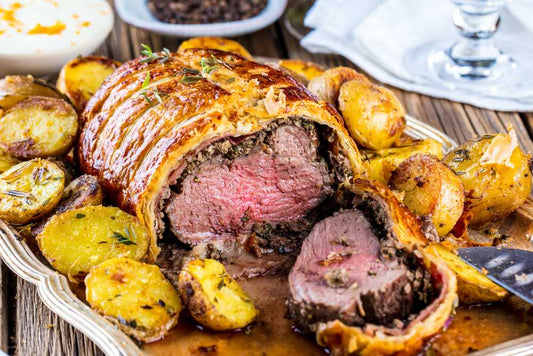Black tea is a popular beverage enjoyed worldwide for its robust flavor and aromatic qualities. One common question that arises among tea enthusiasts and casual drinkers alike is whether black tea contains caffeine. In this comprehensive guide, we will explore the caffeine content of black tea, how it compares to other caffeinated beverages, and the potential effects of caffeine on health.
Understanding Caffeine in Black Tea
Caffeine is a natural stimulant found in various plants, including tea leaves. It acts on the central nervous system to temporarily increase alertness and reduce fatigue. Black tea, derived from the Camellia sinensis plant, contains caffeine, but the amount can vary based on several factors.
Caffeine Content in Black Tea
On average, an 8-ounce (240 ml) cup of black tea contains approximately 40-70 milligrams of caffeine. However, this amount can fluctuate based on factors such as the tea variety, brewing time, and water temperature.
-
Tea Variety: Different types of black tea can have varying levels of caffeine. For instance, Assam and Darjeeling teas tend to have higher caffeine content compared to Earl Grey or English Breakfast blends.
-
Brewing Time: The longer the tea is steeped, the higher the caffeine content. A shorter steeping time will result in lower caffeine levels. For example, steeping tea for 2 minutes may yield less caffeine than steeping it for 5 minutes.
-
Water Temperature: Hotter water extracts more caffeine from the tea leaves. Boiling water will generally extract more caffeine compared to water that is just below boiling.
Comparing Black Tea to Other Beverages
To understand the caffeine content of black tea in context, it helps to compare it to other common caffeinated beverages.
-
Coffee: An 8-ounce (240 ml) cup of brewed coffee typically contains 95-200 milligrams of caffeine, which is significantly higher than the caffeine content in black tea.
-
Green Tea: Green tea, another popular tea type, generally contains less caffeine than black tea, with an average range of 20-45 milligrams per 8-ounce cup.
-
Energy Drinks: Many energy drinks contain caffeine levels similar to or even exceeding those of coffee. A typical 8-ounce (240 ml) serving of energy drink can contain 80-160 milligrams of caffeine.
-
Sodas: Regular sodas, like cola, contain around 30-40 milligrams of caffeine per 12-ounce (355 ml) can, making them comparable to black tea in terms of caffeine content.
Effects of Caffeine on Health
Caffeine consumption can have both positive and negative effects on health. Understanding these effects can help individuals make informed decisions about their caffeine intake.
Positive Effects
-
Increased Alertness: Caffeine is known for its ability to enhance cognitive function, improve concentration, and reduce feelings of fatigue.
-
Enhanced Physical Performance: Caffeine can improve physical performance by increasing adrenaline levels and releasing fatty acids from fat tissues, which can be used as energy.
-
Antioxidant Properties: Tea, including black tea, contains antioxidants that help combat oxidative stress and may contribute to overall health.
Potential Negative Effects
-
Insomnia: Consuming caffeine too close to bedtime can interfere with sleep quality and lead to insomnia.
-
Increased Heart Rate: High caffeine intake can cause an increase in heart rate and blood pressure, which may be concerning for individuals with cardiovascular conditions.
-
Digestive Issues: Some people may experience digestive discomfort, such as acid reflux or upset stomach, as a result of caffeine consumption.
Moderation and Recommendations
Moderation is key when consuming caffeinated beverages. For most people, a moderate intake of caffeine (about 200-300 milligrams per day) is considered safe and can be part of a healthy diet. It's important to be mindful of total caffeine consumption from all sources, including coffee, tea, energy drinks, and sodas.
If you have specific health conditions or are sensitive to caffeine, it may be beneficial to consult with a healthcare professional to determine an appropriate level of caffeine intake.
Decaffeinated Black Tea
For those who enjoy the flavor of black tea but wish to avoid caffeine, decaffeinated black tea is an excellent alternative. Decaffeinated black tea undergoes a process to remove most of its caffeine content, leaving behind a much lower amount—typically less than 5 milligrams per 8-ounce cup.
Decaffeination Methods
-
Chemical Solvent Method: This method uses chemical solvents to remove caffeine from the tea leaves. The tea is then thoroughly washed to remove any remaining solvents.
-
Carbon Dioxide Method: This method uses carbon dioxide at high pressure to extract caffeine from the tea leaves. It is considered a more natural and environmentally friendly process.
-
Water Processing Method: Also known as the Swiss Water Process, this method uses water to remove caffeine from the tea leaves without the use of chemicals.
Choosing the Right Black Tea
Selecting the right black tea can enhance your enjoyment and ensure you get the caffeine content that suits your needs.
Types of Black Tea
-
Assam: Known for its robust and malty flavor, Assam tea typically has a higher caffeine content.
-
Darjeeling: Often referred to as the "Champagne of Teas," Darjeeling tea has a lighter flavor and slightly lower caffeine content.
-
Earl Grey: Flavored with bergamot oil, Earl Grey tea offers a distinctive citrusy taste and generally has moderate caffeine levels.
-
English Breakfast: A strong and full-bodied tea, English Breakfast is often enjoyed in the morning and has a moderate to high caffeine content.
Buying Tips
-
Check Labels: Some brands provide information on the caffeine content of their teas. Look for this information if you want to control your caffeine intake.
-
Opt for Whole Leaves: Loose leaf teas or high-quality tea bags usually contain more flavor and potentially higher caffeine content compared to lower-grade tea bags.
-
Consider Your Preferences: If you prefer a stronger tea with higher caffeine, opt for Assam or English Breakfast. For a lighter tea, Darjeeling or Earl Grey may be better choices.
Conclusion
Black tea does contain caffeine, and its content varies based on factors such as tea variety, brewing time, and water temperature. While black tea generally has less caffeine than coffee and energy drinks, it is still a significant source of this stimulant. Understanding the effects of caffeine, exploring decaffeinated options, and choosing the right type of black tea can help you enjoy this beloved beverage while managing your caffeine intake effectively. Whether you're savoring a cup of bold Assam or a fragrant Earl Grey, black tea remains a flavorful and enjoyable drink that offers a delightful balance of taste and caffeine.


